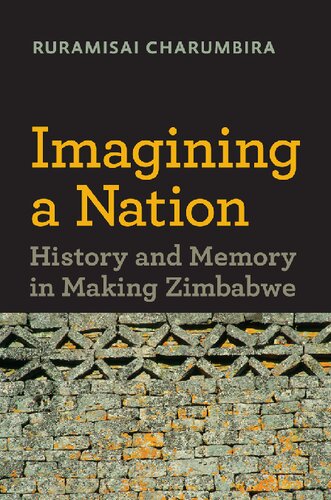

Most ebook files are in PDF format, so you can easily read them using various software such as Foxit Reader or directly on the Google Chrome browser.
Some ebook files are released by publishers in other formats such as .awz, .mobi, .epub, .fb2, etc. You may need to install specific software to read these formats on mobile/PC, such as Calibre.
Please read the tutorial at this link: https://ebookbell.com/faq
We offer FREE conversion to the popular formats you request; however, this may take some time. Therefore, right after payment, please email us, and we will try to provide the service as quickly as possible.
For some exceptional file formats or broken links (if any), please refrain from opening any disputes. Instead, email us first, and we will try to assist within a maximum of 6 hours.
EbookBell Team

0.0
0 reviewsIn Imagining a Nation, Ruramisai Charumbira analyzes competing narratives of the founding of Rhodesia/Zimbabwe constructed by political and cultural nationalists both black and white since occupation in 1890. The book uses a wide array of sources―including archives, oral histories, and a national monument―to explore the birth of the racialized national memories and parallel identities that were in vigorous contention as memory sought to present itself as history. In contrast with current global politics plagued by divisions of outsider and insider, patriot and traitor, Charumbira invites the reader into the liminal spaces of the region’s history and questions the centrality of the nation-state in understanding African or postcolonial history today.
Using an interdisciplinary methodology, Charumbira offers a series of case studies, bringing in characters from far-flung places to show that history and memory in and of one small place can have a far-reaching impact in the wider world. The questions raised by these stories go beyond the history of colonized or colonizer in one former colony to illuminate contemporary vexations about what it means to be a citizen, patriot, or member of a nation in an ever-globalizing world. Rather than a history of how the rulers of Rhodesia or Zimbabwe marshaled state power to force citizens to accept a single definition of national memory and identity, Imagining a Nation shows how ordinary people invested in the soft power of individual, social, and collective memories to create and perpetuate exclusionary national myths.
Reconsiderations in Southern African History